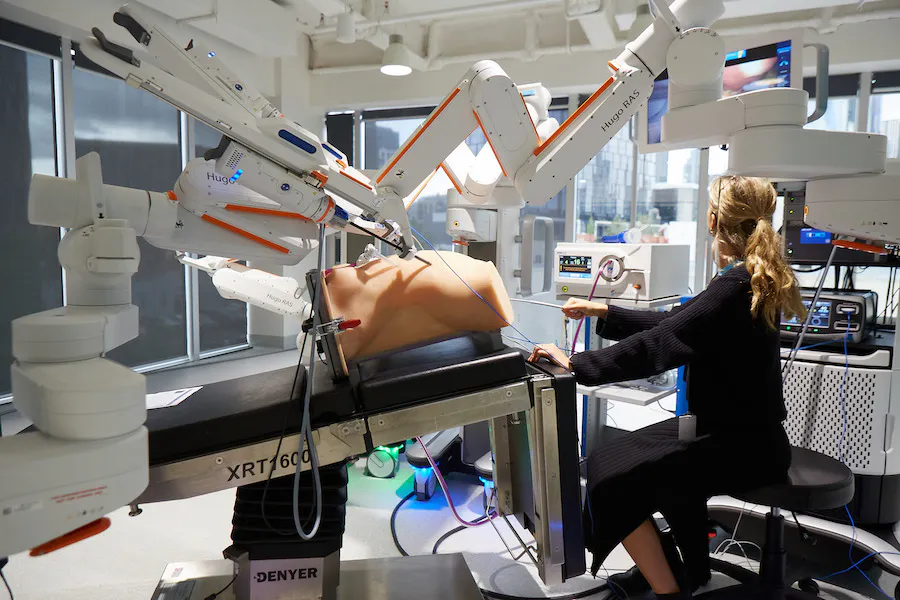Around the world, a seismic shift is reshaping how medical professionals learn, train, and prepare for life-saving procedures. The era of cutting into animals for surgical practice is rapidly coming to an end, replaced by a wave of innovative, human-relevant, compassionate technologies. And at the front of this transformation is a new generation of synthetic surgical models that look, feel, react, and even bleed like real human tissue — without harming a single animal.
At Sustainable Action Now, we champion the science-forward solutions that protect animals, advance medicine, and elevate global health standards.
Today’s report highlights one of the most exciting breakthroughs in ethical medical education: IMRA Surgical’s cutting-edge synthetic models and the expanding global campaign to end the use of animals in surgical training altogether.
For ongoing updates, research, and advocacy resources related to ending cruelty in scientific and medical settings, explore our dedicated coverage here:
A New Era in Medical Education: IMRA Surgical Leads the Way
For decades, surgical trainees were forced to practice on animals — dogs, pigs, sheep, and other sentient beings who were used, harmed, and killed for educational procedures that had little resemblance to real human anatomy. These outdated methods have long drawn criticism both for their ethical implications and their scientific limitations.
Enter IMRA Surgical, whose state-of-the-art synthetic models are redefining what surgical realism actually means. Their models offer:
- Realistic textures and anatomical accuracy
- Tissue layers that cut and respond like human flesh
- Simulated bleeding for lifelike hemostasis training
- Reproducible scenarios that allow students to practice repeatedly without harming any living being
- Consistent quality unmatched by inconsistent animal anatomy
These innovations don’t just prepare future surgeons — they also elevate the standards of global healthcare by focusing on human-specific outcomes rather than approximations drawn from animal bodies.
This is the future: precise, predictable, ethical, and entirely animal-free.
PETA and Global Advocates Push Toward Animal-Free Surgical Training Worldwide
While IMRA’s technology sets a scientific benchmark, organizations like PETA are working to turn these breakthroughs into worldwide policy reform. Their mission is clear: make animal-free surgical training the global standard across medical schools, universities, military programs, trauma institutes, and surgical residency programs.
Why this matters:
- Thousands of animals are still subjected to invasive, painful procedures every year under the banner of “training.”
- These practices persist despite the availability of superior alternatives.
- Many institutions continue using animals simply due to tradition, not necessity.
- Students at some programs express discomfort and ethical conflict when required to participate.
- Studies consistently show that human-based simulation produces equal or better surgical competency.
Through legal petitions, public awareness campaigns, collaboration with medical boards, and global advocacy, PETA and its partners are pushing for a medical education landscape where no animal is ever harmed in the name of human surgery again.
And Sustainable Action Now stands firmly behind this mission.
For more information on the broader movement to end animal exploitation in scientific settings, visit:
➡️ https://sustainableactionnow.org/animal-testing/
Why Ethical Training Is Better Medicine
Transitioning to animal-free surgical training is not only a moral imperative — it’s a scientific one.
1. Human-Relevant Data Leads to Better Outcomes
Animal anatomy differs significantly from human anatomy. Synthetic models, unlike animals, are engineered to replicate exact human tissues, vessels, organs, and surgical scenarios.
2. Repetition Enhances Mastery
Animals can be used only once. Ethical models can be used repeatedly, empowering learners to hone skills without limitations.
3. No Sentient Being Suffers
Animal-based training often involves invasive procedures that cause pain, distress, and ultimately death. Ethical alternatives eliminate that harm entirely.
4. Cost-Effective and Sustainable
Reusable models reduce financial strain, eliminate waste associated with animal use, and support environmentally responsible medical training.
5. Supports Modern Medical Education
Leading institutions worldwide are shifting to simulation-based training — a move that aligns with evolving accreditation standards and student demand.
The Global Movement Toward Compassionate Innovation
Sustainable Action Now advocates for a world where medical advancement and compassion progress together. The rapid evolution of animal-free surgical training represents one of the most clear-cut examples of humane innovation driving better science.
Consider the trajectory:
- Synthetic organ systems now mimic complex surgical environments.
- 3D-printed tissues allow customization for rare conditions.
- Virtual reality platforms give surgeons thousands of hours of immersive practice.
- AI-enhanced procedural simulations help trainees identify errors in real time.
These breakthroughs not only improve training quality but also expand access, allowing more students worldwide to obtain high-level surgical experience without ethical conflict.
The future of surgical training is not only animal-free — it is advanced, accessible, and profoundly humane.
To follow the expanding global movement to end animal testing and animal-dependent training, visit:
➡️ https://sustainableactionnow.org/animal-testing/
A Turning Point for Medicine and Ethics
The shift toward animal-free surgical training represents much more than the adoption of new tools — it signals a cultural and scientific turning point. It demonstrates that medicine can evolve without cruelty, that progress does not require compromise, and that ethical innovation is not only possible but preferable.
IMRA Surgical’s models show what’s achievable. PETA’s global campaign shows what’s necessary. And Sustainable Action Now shows why this moment matters.
Together, we can build a future where:
- Medical training harms no one.
- Compassion drives scientific progress.
- Human-relevant technology replaces outdated, unethical methods.
- Healthcare professionals enter the field fully prepared, confident, and ethically grounded.
This is the future of surgical training — and it’s already within reach.


